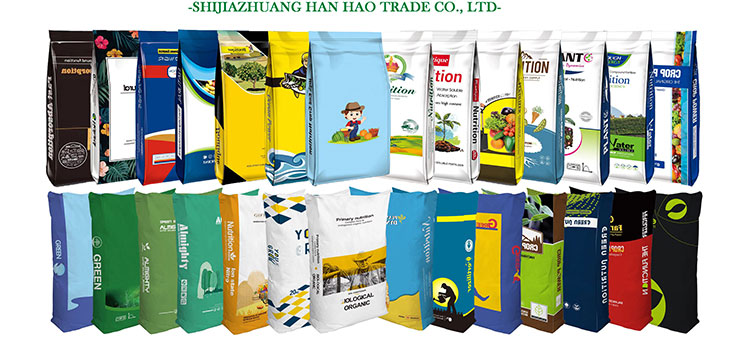
Kas . 04, 2024 21:56 Back to list
high quality best fertilizer tomatoes organic
The Best Organic Fertilizers for Growing High-Quality Tomatoes
Growing tomatoes can be a rewarding endeavor, especially when you achieve a bumper crop of flavorful, juicy fruits. To ensure that your tomato plants thrive and produce high-quality yields, using the right fertilizer is crucial. Organic fertilizers stand out not only for their effectiveness but also for their environmental benefits. In this article, we’ll explore the best organic fertilizers for tomatoes and how they contribute to the health and productivity of your garden.
Understanding Tomato Nutritional Needs
Tomatoes are heavy feeders, which means they require a significant amount of nutrients to grow and produce fruit. The primary elements they need include nitrogen (N), phosphorus (P), and potassium (K), often referred to as NPK. Additionally, tomatoes benefit from essential micronutrients like calcium, magnesium, and sulfur.
1. Nitrogen Essential for leaf and stem growth, nitrogen helps your tomato plants establish a robust structure, which is vital for supporting fruit production. 2. Phosphorus Important for root development and flowering, phosphorus aids in the establishment of a healthy root system, leading to better nutrient uptake. 3. Potassium This nutrient enhances overall plant health, improving resistance to disease and stress while increasing the quality of fruits produced.
Organic fertilizers not only provide these nutrients but also improve soil health over time, creating a sustainable growing environment for your tomatoes.
Best Organic Fertilizers for Tomatoes
1. Compost One of the most beneficial organic fertilizers, compost adds a rich blend of nutrients and enhances soil structure. It improves moisture retention and supports beneficial microorganisms in the soil, which are crucial for healthy root development.
2. Well-Rotted Manure Animal manure (such as from cows, horses, or chickens) is an excellent source of nutrients. It’s rich in nitrogen and provides a slow-release option for your plants. However, be sure to use well-rotted manure to avoid burning your plants or introducing pathogens.
3. Bone Meal This organic fertilizer is high in phosphorus, making it an ideal amendment for planting tomatoes. It promotes strong root development and flower formation, ultimately leading to higher yields.
4. Kelp Meal Rich in potassium and trace minerals, kelp meal helps improve the overall health of tomato plants. It enhances water retention, promotes root growth, and boosts resistance to stressors like drought and disease.
high quality best fertilizer tomatoes organic

5. Fish Emulsion A powerful source of nitrogen, fish emulsion provides a quick nutrient boost for vigorous foliage growth. Its liquid form makes it easy to apply and absorb quickly, although it should be used sparingly as too much nitrogen can lead to lush foliage at the expense of fruit development.
6. Crushed Eggs Shells While not a fertilizer per se, they provide a slow-release source of calcium, which is crucial for preventing blossom end rot, a common problem in tomatoes. Simply crush the shells and mix them into the soil or sprinkle them around the plants.
7. Organic Slow-Release Granules Many commercially available organic fertilizers come in slow-release granules and are specifically formulated for tomatoes. These blends typically include a balanced ratio of NPK, along with micronutrients, ensuring that your plants receive a steady supply of nutrients over time.
Application Tips
To maximize the benefits of organic fertilizers, consider the following tips
- Test Your Soil Before adding any fertilizer, it's wise to perform a soil test. This will help you understand existing nutrient levels and pH, guiding you to amend the soil appropriately.
- Follow Package Instructions Always adhere to recommended application rates on the packaging to avoid over-fertilizing, which can harm plants.
- Incorporate Fertilizer Wisely When planting, mix fertilizer into the soil. For established plants, side-dressing around the base during the growing season can provide additional nutrition.
- Water Thoroughly Water your plants after applying fertilizers to help dissolve nutrients and facilitate their absorption by the roots.
Conclusion
Using high-quality organic fertilizers for your tomato plants can lead to an abundant harvest of delicious fruits. By selecting the right combination of fertilizers and applying them thoughtfully, you can enhance your garden's productivity while maintaining environmental stewardship. Happy gardening!
-
10-10-10 Organic Fertilizer - Balanced NPK Formula
NewsAug.02,2025
-
Premium Organic Manure Compost for Eco Gardens
NewsAug.01,2025
-
Organic 10-10-10 Fertilizer | Balanced Plant Nutrients
NewsJul.31,2025
-
Premium Amino Acid Fertilizer | Rapid Plant Growth Booster
NewsJul.31,2025
-
10 10 10 Fertilizer Organic—Balanced NPK for All Plants
NewsJul.30,2025
-
Premium 10 10 10 Fertilizer Organic for Balanced Plant Growth
NewsJul.29,2025
